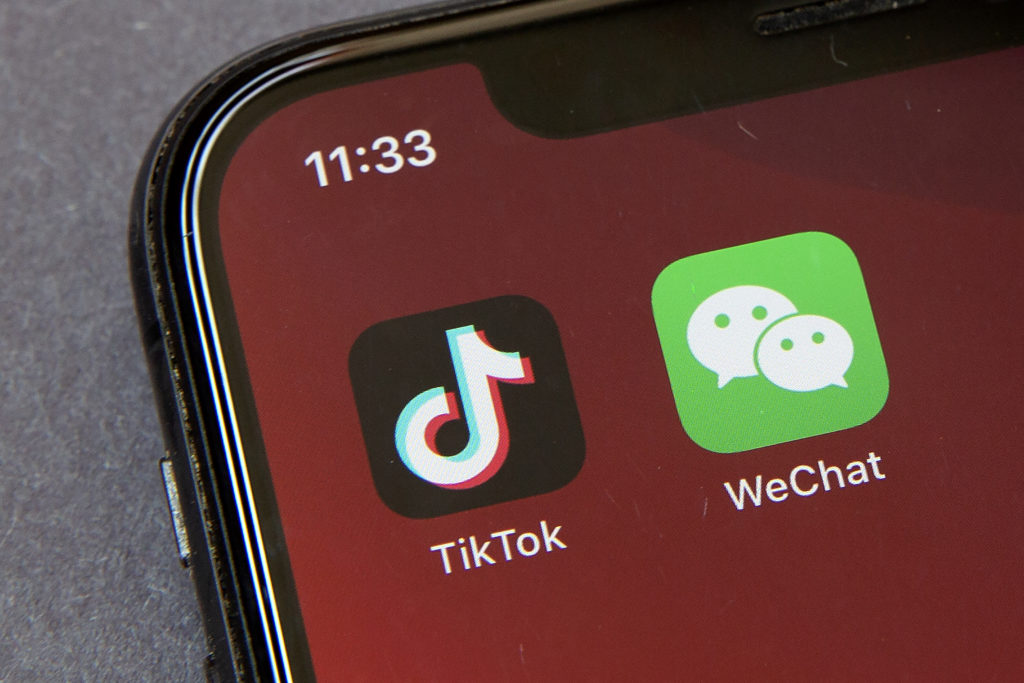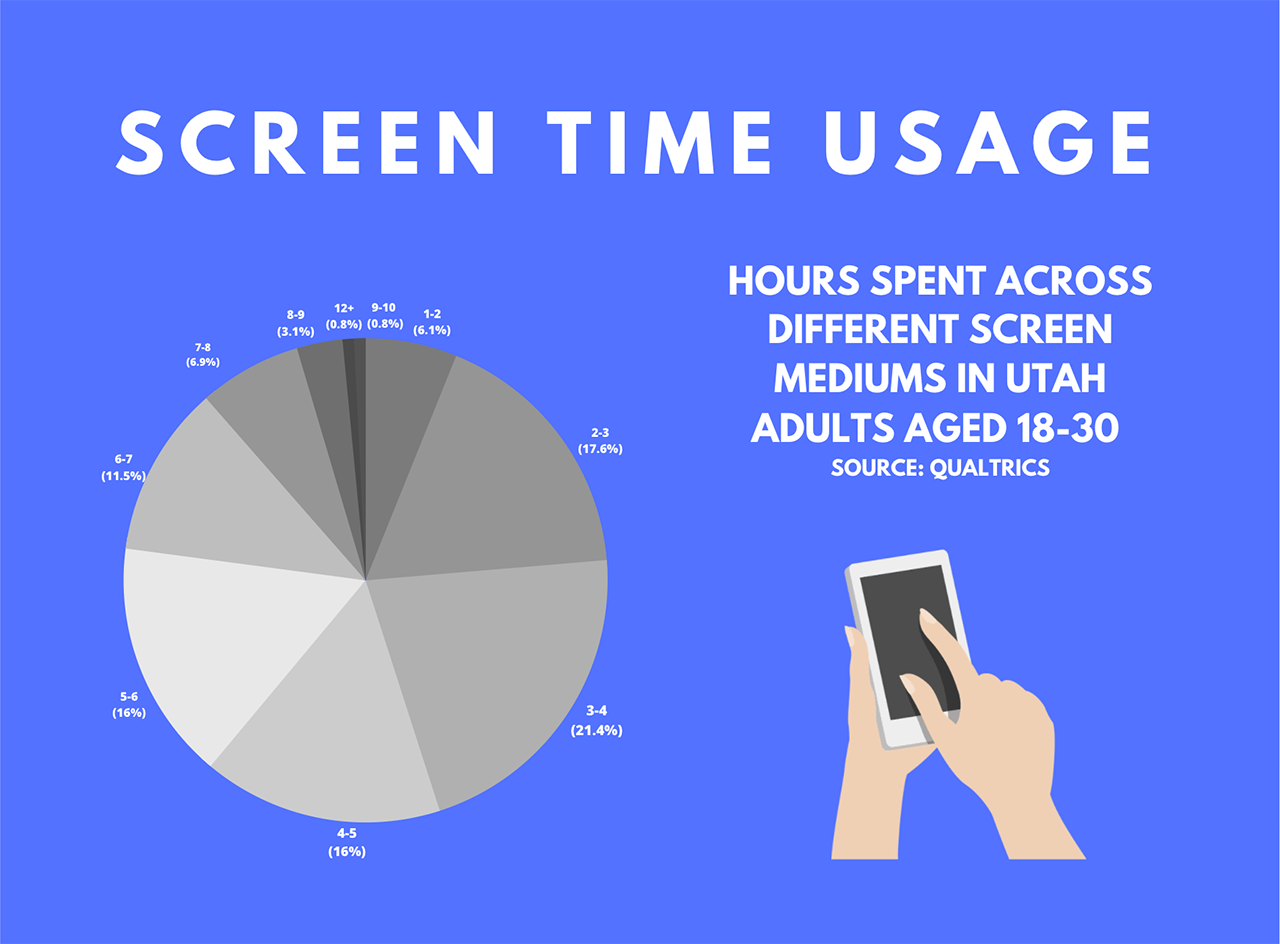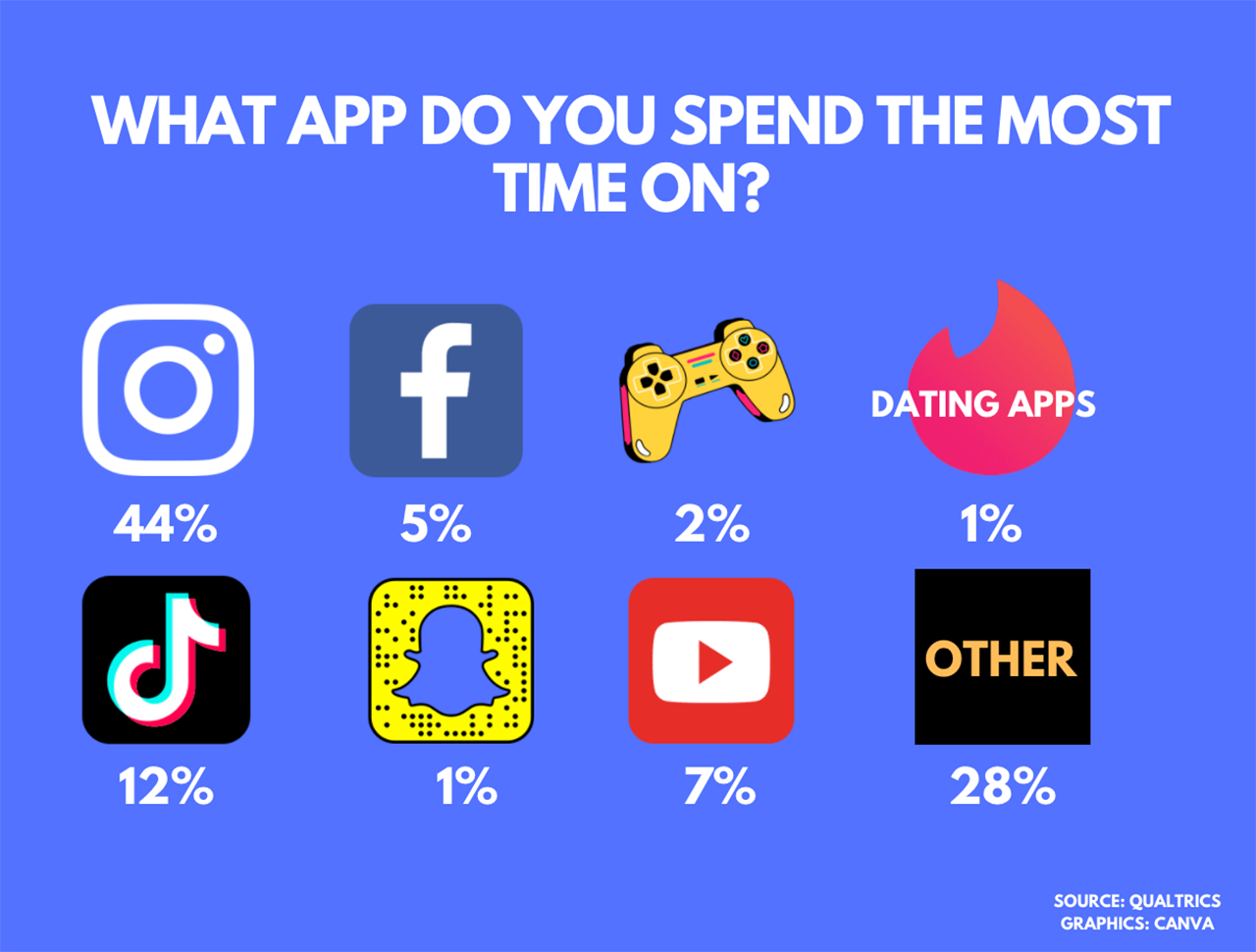TikTok, TikTok: College-aged students’ screen time ticking by

High screen time usage is a reality for many young adults between the ages of 18-30 in the United States and is negatively impacting academic performance of college students.
OneClass, an educational company, performed a study among first-year college students, analyzing their screen time. When comparing screen time to academic performance, a distinct correlation was found between high screen time and low grades.
OneClass concluded: “More phone time results in a higher likelihood to get a lower grade than a B minus.”
This may become the case for Utah students as well. A Qualtrics survey created by a Daily Universe reporter was sent to BYU and UVU students and 138 college students in Utah County responded. Participants were asked, “Do you think your screen time affects your school grades?” Results showed 71% responded “yes” or “sometimes,” compared to 29% who said “no.”
“I find that the more time that I spend on my phone, the worse I do on school assignments and homework. I also get less sleep than I would like because I am on my phone so much,” BYU student Brock Thatcher said
Pre-business major Brayden White agreed and said even though screen usage isn’t all bad, it does “lead to procrastination and failure in schooling.”

A shared concern among students who took the survey was the growing dependence on smartphones in the classroom as teachers now take attendance via phone apps and campus jobs require a smartphone to clock work hours. Though classrooms have gradually become more dependent on smartphones and laptops, students indicated that outside of the classroom, they use smartphones and other screen mediums to dissociate from the stress of school.
One of these students was Bethany Curtis, an advertising major at BYU.
“Most of the time I spend on my phone is time when I am destressing or taking a step back from my homework,” Curtis said. “It gives me a nice little mental break before I have to get back to the grind, and it gives me the chance to check in with my friends and brighten their day by sending memes and funny TikToks.”
Social science education major Audra Heeb responded similarly. Going on her phone provides a break from school, however, Heeb said she easily gets distracted by her phone and procrastinates assignments.
“When I sit on my phone and procrastinate my homework, it leaves me less time to do things I actually want to do, like do something outside, watch a show I like or spend time with my husband and friends,” Heeb said.
The survey asked participants how much time they spend on screens per day. The most popular answer was 3-4 hours, with the majority of respondents falling between 3-7 hours a day. Only one individual indicated their screen time was more than 12 hours a day. The two most popular apps that contributed to screen time usage were Instagram and TikTok.

Although screen time usage may be increasing as society becomes more dependent on smartphones and other technology, sometimes dependency has positive outcomes.
For BYU international students like Shelly-Anne Haisman, technology is the only way to connect with distant family members.
“Most of my screen time is used on Facebook Messenger,” Haisman said. “My partner lives overseas and my family is still in Australia. I love technology because it’s made it possible to live wherever and however I want while still keeping in touch with the people I love.”
Holistic child psychologist Nicole Beurkens said research indicates high screen time usage in working adults can affect productivity and stress levels. Even as students transition to jobs beyond graduation, social media apps can continue to affect mental health and communication in the professional world.

